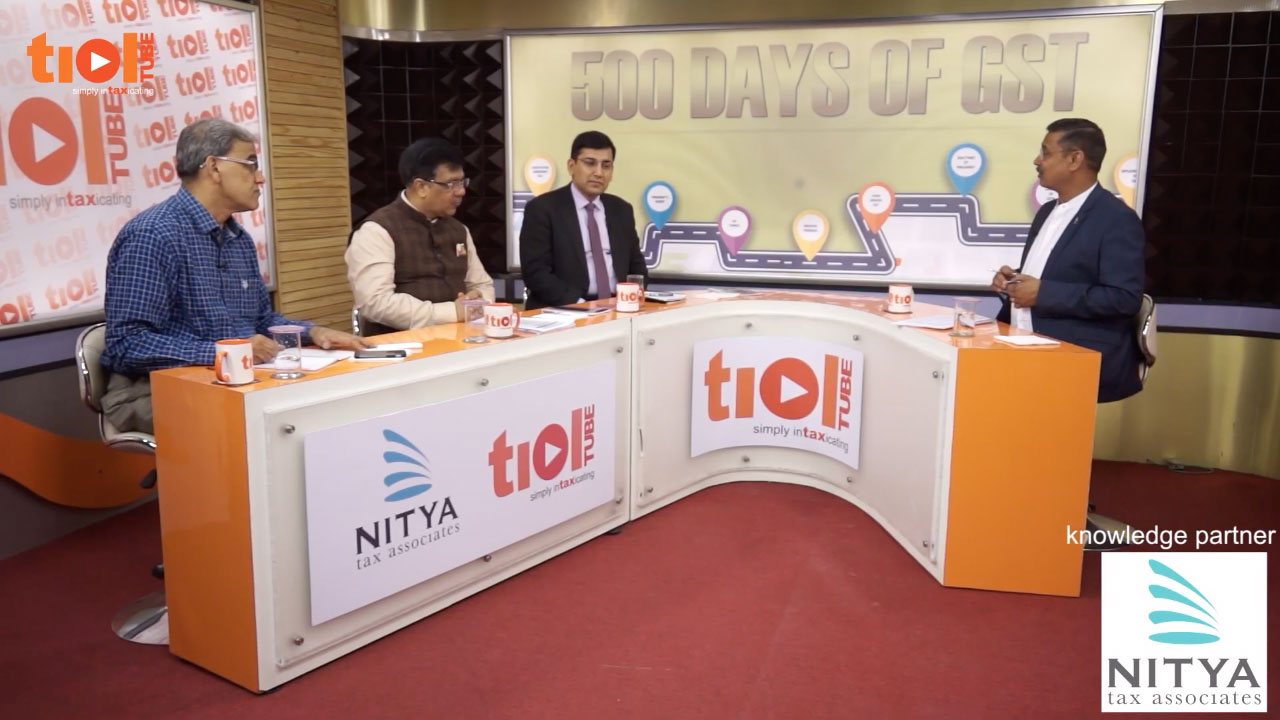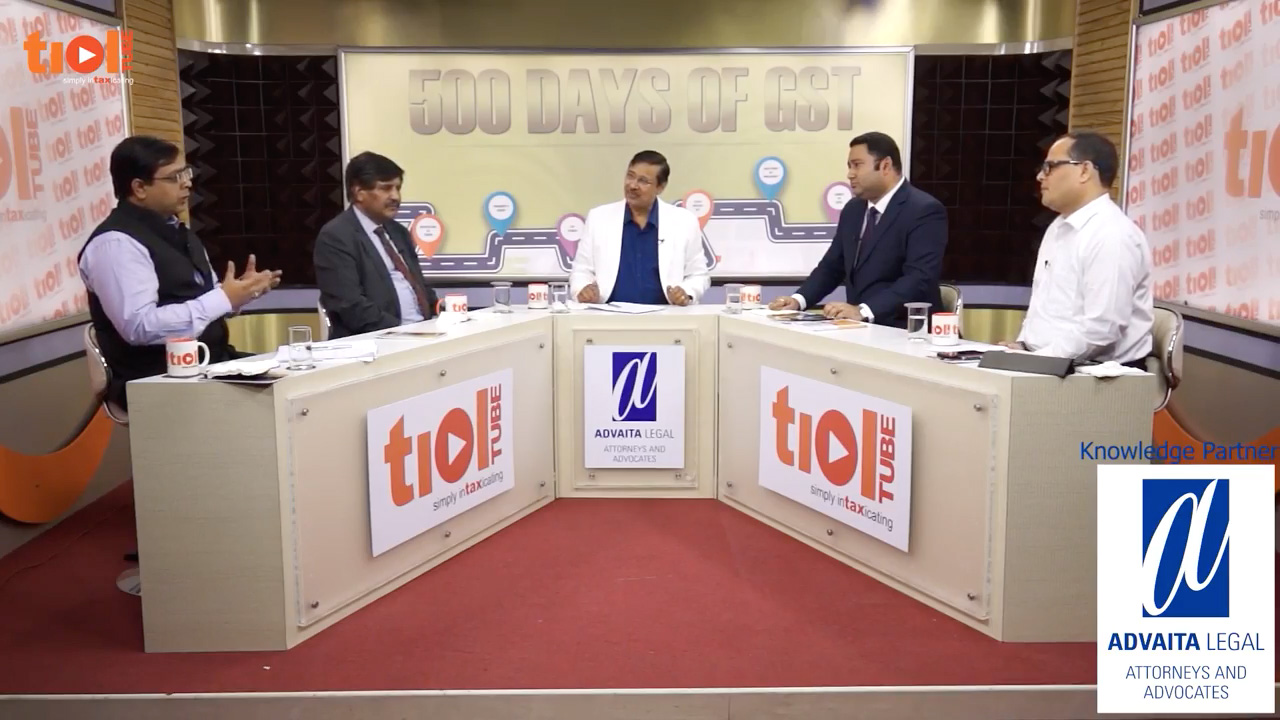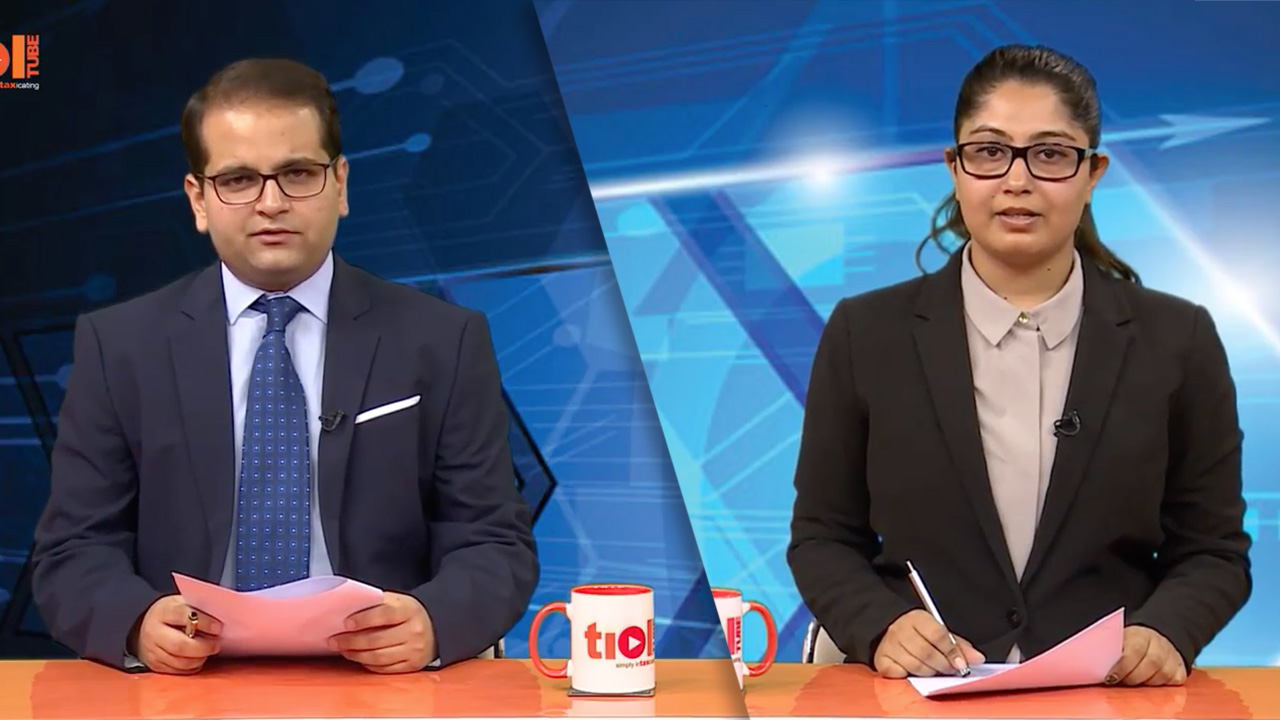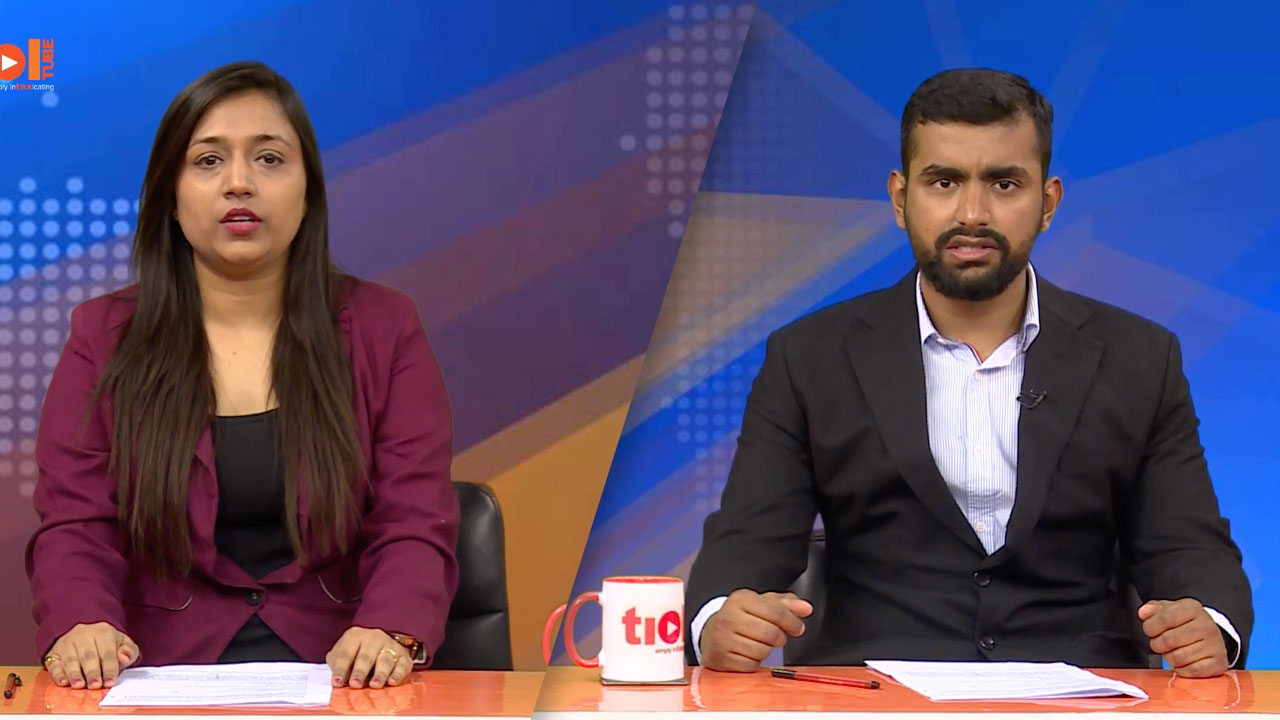|
SERVICE TAX
2018-TIOL-3481-CESTAT-DEL
Eih Ltd Vs CCE
ST - The assessee is registered for providing Aircraft operator Services - However, Department noticed that assessee was supplying the Aircraft/ Helicopter service to different service receivers as per the agreement entered into and as such, it was alleged that they were providing services under category of supply of tangible goods, for which they neither took any Service Tax Registration nor did they paid any service tax on the said activity - An identical issue regarding charter hire of helicopter came up before the Tribunal in case of Global Vectra Helicorp Ltd. - 2015-TIOL-380-CESTAT-MUM , wherein the assessee claimed classification of their service as Transportation of Passengers by Air Service - But, the Tribunal after very detailed discussion of the facts and various case laws on the subject as well as CBEC Circular No.20/2009 came to the conclusion that the services will be rightly classifiable under the category of "Supply to Tangible Goods Service" - By following the decision of Tribunal, classification of service made under category of STGS - As regards to limitation, it is apparent from SCN that a demand for the period w.e.f. May, 2008 to May, 2010 has been raised - It becomes apparently clear that while issuing the said SCN, Department has invoked the longer time limit as mentioned in proviso to Section 73 of the Act - Accordingly, the demand falling beyond one year period preceding SCN is not sustainable and accordingly is set aside - The order under challenge is hereby modified confining the demand for a period of one year only: CESTAT
- Appeal allowed: DELHI CESTAT
2018-TIOL-3480-CESTAT-MAD
Cotton City Developers Pvt Ltd Vs Commissioner of GST & CE
ST - The assessee is providing construction service under CICS and residential complex service - During scrutiny of ST-3 returns, it was noticed by department that even though they were continuing with providing of taxable service under CICS and the construction of residential complex service, they stopped paying service tax from October 2006 onwards - They had thus not paid service tax in respect of two on-going projects which were Manchester Grand and Manchester Albatross comprising flats and independent bungalows - A SCN was issued to assessee proposing to demand service tax for the period from July 2006 to September 2009 under construction of residential complex in respect of these residential complexes - Part of the demand would fall prior to 1.6.2007 being works contract service and hit by the decision in the case of Larsen & Toubro - 2015-TIOL-187-SC-ST - These construction services are composite service for the reason that the demand itself has been confirmed after granting 67% abatement as per the relevant notifications - The circular dated 1.8.2006 issued by Board relied by assessee makes it clear that the developer / promoter which builds the residential complex using the services of a contractor is not liable to pay service tax and it is the contractor who is liable to pay - Undisputedly, contractor has discharged service tax on the construction activities - The demand is made against assessee merely alleging that he is the main contractor and although the contractor has discharged the service tax, it is only the sub-contractor and therefore assessee is liable to pay service tax - No merit found in the allegation of the department - The construction services had already suffered service tax as the contractor who is engaged in the construction of building/complex has discharged service tax - The Tribunal in the case of Logos Construction Pvt. Ltd. - 2018-TIOL-2716-CESTAT-MAD had occasion to consider a similar issue and has held that the demand cannot sustain - The issue has also been analyzed in the case of Krishna Homes - 2014-TIOL-402-CESTAT-DEL - The demand cannot sustain, same is set aside: CESTAT
- Appeal allowed: CHENNAI CESTAT
2018-TIOL-3479-CESTAT-MAD
Sima Engineering Constructions Vs CCE
ST - The assessee is engaged in execution of works contract - They were engaged by Tamil Nadu Police Housing Corporation Ltd. (TNPHCL) which is a Government of Tamil Nadu company wherein 100% of shares are held by Tamil Nadu Government for construction of police quarters - A SCN was issued to them proposing to demand service tax under category of 'Construction of Residential Complex Service' for the period from 16.6.2005 to 31.12.2007 - By applying the decision in case of Larsen & Toubro - 2015-TIOL-187-SC-ST, the demand for the period prior to 1.6.207 is not sustainable and is set aside - For the period after 1.6.2007, assessee has argued that levy cannot sustain in terms of decision in case of Nitesh Estates - That this Tribunal in case of Lanco Tanjore Power Co. Ltd. - 2018-TIOL-2138-CESTAT-MAD held that when construction activity is undertaken for personal use, the same is excluded from the definition of residential complex contained in Section 65(91a) of FA, 1994 - Since the quarters were constructed for use of police personnel, the same is outside the purview of definition of construction of residential complex, as it is covered by Explanation to said definition - The ownership of houses constructed vests with the Government of Tamil Nadu who allots houses to police personnel - There is no profit motive involved in these transactions and there is no renting or letting of these quarters for commercial purposes - The land on which the building is built up belongs to the Government of Tamil Nadu and the ownership of the entire property vests with the Government - That therefore, applying the decision in Nithesh Estates , levy of service tax cannot sustain: CESTAT
- Appeals allowed: CHENNAI CESTAT
CENTRAL EXCISE
2018-TIOL-2437-HC-MAD-CX
CCE Vs SP Fabricators Pvt Ltd
CX - (1) Whether the CESTAT is right in holding that amendment of rule 6(6) of the Cenvat Credit Rules [CCR] under notification 50/2008-CE (N.T.), dated 31.12.2008 is clarificatory and, therefore, retrospective in nature ? (2) When common inputs are used and the assessee has not maintained separate accounts, whether the assessee/1st respondent is liable to pay 10% of the value of goods cleared to SEZ developers as per rule 6(6) of the CCR prior to 31.1.2008.
Held : Identical issue was considered by the High Court of Chhattisgarh in Steel Authority of India 2013-TIOL-1239-HC-CHHATTISGARH-CX , wherein one of the questions, which was framed for consideration was whether the Tribunal erred in holding the amendment notification 50/2008, dated 31.12.2008 as retrospective, when admittedly the said notification provides that the same shall come into force on their publication in official gazette? - the Court, on interpretation of the provisions of SEZ Act, held that the amendment being a 'substitution' is retrospective - identical view was taken by the High Court of Karnataka in the case of Fosroc Chemicals (India) Pvt. Ltd. - 2014-TIOL-1609-HC-KAR-CX - on a reading of the above amendment notification 50/2008, it is evident that clause (i) of sub-rule 6 of rule 6 was substituted, thereby, the provisions of sub-rules (1), (2), (3) and (4) shall not be applicable in case the excisable goods are removed without payment of duty or either cleared to a unit in a special economic zone or to a developer of a special economic zone for their authorised operations - 'substitution' has to be read as a replacement of an existing rules - the Bench is in respectful agreement with the decision in the case of Steel Authority of India Ltd., and in the case of Fosroc Chemicals India (P) Ltd. - in the result, the appeal filed by the Revenue is dismissed and the Substantial Questions of Law framed for consideration are answered in favour of the respondent/assessee - however, in the event the Revenue succeeds in the appeals, which are now pending before the Supreme Court and different view is taken, the questions may be required to be considered by the competent authority and at that stage the rights and contentions of both sides shall remain open - It is also made clear that either party will not be entitled to raise the plea of limitation in such a contingency: HIGH COURT [para 9, 10, 12, 17, 19, 22, 23]
- Appeal of Revenue dismissed: MADRAS HIGH COURT
2018-TIOL-3478-CESTAT-MUM
Nityanand Engineering Pvt Ltd Vs CE
CX - Issue of fabrication of various iron and steel items was the subject matter of litigation before various forums and the issue was not clear - it was only by the Larger Bench decision in Mahindra &Mahindra - 2005-TIOL-1215-CESTAT-DEL-LB that it was held that such fabrication amounts to manufacture - in such a scenario, the appellant cannot be held guilty of any malafide so as to impose penalty upon them or confiscate the goods - penalty as well as redemption fine set aside - appeal allowed to this extent: CESTAT [para 3, 4]
- Appeal partly allowed: MUMBAI CESTAT
2018-TIOL-3477-CESTAT-MUM
Prerna Fast Food Vs CCE
CX - Issue relates to classification of Pizza manufactured by the appellants which they claimed to be classifiable under Chapter 19 whereas Revenue proposed classification under Chapter 16 of CETA, 1985 - CESTAT had vide order no. A/351-353/11/EB/CII dated 18.04.2011 in their own case held that Pizza having topping of Chicken is not classifiable under Chapter 16 - following the same, the present appeals are allowed with consequential relief: CESTAT [para 4]
- Appeals allowed: MUMBAI CESTAT
2018-TIOL-3476-CESTAT-MUM
Raymond Ltd Vs CCE
CX - Refund claims filed under notification 41/2007-ST were rejected on the ground that the same were filed beyond the prescribed time limit and that in respect of two Shipping bills, the commission amount has not been shown -appeal to CESTAT.
Held: Mandatory condition enumerated in the notification is to the effect that the output service should be exported by the assessee upon utilisation of the service tax suffered input services - considering the scope of notification, Tribunal in the case of Chandrashekhar Exports - 2015-TIOL-2448-CESTAT-MUM has held that even if the refund claim was filed beyond the stipulated period, the benefit cannot be denied, once it is substantiated that the mandatory requirements of the notification have been complied with - Gujarat High Court in the case of ABG Shipyard Ltd. has held that non-mentioning of the ‘commission' made in the shipping bill is a technical error and since such amount has been paid by the assessee, the refund benefit cannot be denied - impugned order set aside and appeal allowed with consequential relief: CESTAT [para 6, 7]
- Appeal allowed: MUMBAI CESTAT
CUSTOMS
2018-TIOL-2438-HC-MAD-CUS + Case Story
Saint Gobain India Pvt Ltd Vs UoI
Cus - Anti-dumping duty - Even in the absence of time limit fixed, a review undertaken under Rule 22 is required to be completed on an accelerated basis i.e. definitely before the time period prescribed in Rule 17 or Rule 23 - Statutory interpretation of a provision is never static but is always dynamic - Though literal rule of interpretation, till some time ago, was treated as the 'golden rule', it is now the doctrine of purposive interpretation which is predominant, particularly in those cases where literal interpretation may not serve the purpose or may lead to absurdity - The agreement to which India is a signatory, is the basis of the ADD, and, therefore, the purpose behind that must be the guiding force while interpreting Rule 22 - Single Judge erred in applying the literal Rule of Interpretation, to come to a conclusion that to fix the time limit in Rule 22 would amount to rewriting the Rule - If the time taken in review under 22 is longer than the original investigation, then this would allow the foreign exporter to dump its goods into India, on the basis of provisional assessment, to the detriment of the Indian Domestic Industry - The exporter can manipulate his prices and create documents, if the period for investigation, under Rule 22 is not shorter than the original investigation and the very purpose of imposing Anti- Dumping duty will be lost - The time limit for completing the New Shippers Review must be read into Rule 22 of ADD - judgment of the Single Judge is set aside and writ appeals are allowed: HC [para 30, 33, 35, 40, 42, 46, 47]
Cus - ADD - Jurisdiction - Even though the order of the Designated Authority is appealable, yet that does not take away the jurisdiction of the High Court in entertaining the writ petition - Writ petition raises substantial questions of law regarding the scope and ambit of Rule 22 of the ADD Rules, and as to whether the period of limitation must be read into the Rule, an exercise which the appellate authority could not have undertaken as a creature under the Statute would be bound by the literal Rule of Construction: High Court [para 48]
- Writ Appeals allowed: MADRAS HIGH COURT
2018-TIOL-2436-HC-MAD-CUS
Stephen Stanislaus Rosario Vs ACC
Cus - Respondent herein has filed a complaint against the petitioner and two others to punish them for the offences punishable under sections 132 and 135 of the Customs Act, 1962 [Act] - this petition has been filed by the petitioner u/s 482 of Cr.P.C. to quash the proceedings against him.
Held: Since the Appellate Tribunal, vide order dated 1.7.2015, has dismissed the appeal filed by the petitioner, it is clear that the original confiscation order passed by the Adjudicating Authority has been restored and, therefore, there is no bar for continuation of prosecution - from the Supreme Court decision in the case of Air Customs Officer, IGI, New Delhi Vs. Pramod Kumar Damija - 2016-TIOL-15-SC-CUS , it is clear that adjudication proceedings and criminal prosecution can be launched simultaneously and the decision in adjudicating proceeding is not necessary before initiating criminal prosecution and that the adjudication proceeding and criminal proceeding are independent in nature to each other - the dismissal order passed by the trial court in the discharge petition filed by the petitioner is not an interlocutory order and as such, it is a revisable order but, the petitioner has not filed any revision - from the Supreme Court decision in Mohit alias Sonu and Another Vs. State of U.P and Another (Crl.A.814 of 2013) dated 1.7.2013, it is clear that when there is a specific remedy provided by way of appeal or revision, the inherent power u/s. 482 Cr.P.C or section 151 Cr.P.C cannot be resorted to - looking from any angle, this petition is not maintainable and hence, the same is liable to be dismissed - accordingly, this petition is dismissed : HIGH COURT [para 11, 12, 18, 19, 20]
- Criminal Petition dismissed: MADRAS HIGH COURT
2018-TIOL-3475-CESTAT-AHM
International Packing Products Pvt Ltd Vs CCE & ST
Cus - The assessee, an EoU, cleared imported Poly Propylene to its sister unit which is also an EoU - CT-3 certificate was obtained from jurisdictional Excise commissionerate - The assessee procured such goods at nil rate of duty under Notfn No 52/2003-Cus - The Department opined that the notfn mandated that inputs imported be used to manufacture items for export or with any intermediary production, packaging or job work in respect of goods or services exported by EoU - Since the assessee cleared the goods to another EoU, the Department alleged that the assessee contravened the mandate of such Notfn - Duty demand was raised with interest & equivalent penalty - Such demands were upheld by the Commr.(A).
Held: Considering the provisions laid down in Para 6.15 of the Foreign Trade Policy, it is seen that clearance of duty free imported goods is permitted where cleared to another EoU - Hence the assessee need not pay any duty - Hence the demands be set aside: CESTAT (Para 1,4,5)
- Assessee's appeal allowed; AHMEDABAD CESTAT
|
|










